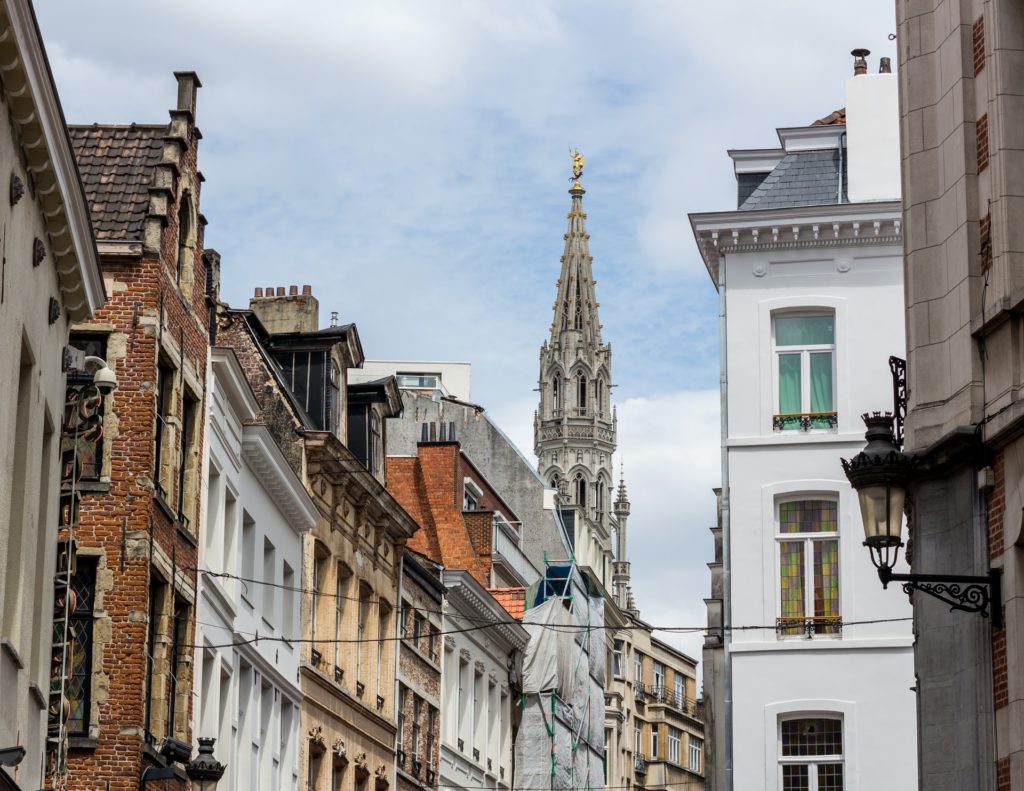Faced with rising homelessness, the Brussels government has agreed to set aside €965,000 towards social initiatives aimed at using unoccupied buildings for temporary housing.
Around 500 people will benefit from the housing, amid increasing rates of squatting (temporary occupation of vacant buildings) that stem from a shortage of affordable housing and the migration crisis that’s hit the Belgian capital in recent years, two factors that have been made worse as a result of the Covid-19 pandemic.
“These occupations are part of a context of poverty and vulnerability that, given the circumstances in which they take place, raises health and even safety concerns,” said a press release from the secretary of state for the Brussels-Capital Region, Nawal Ben Hamou.
“Since the beginning of the health crisis, there has been an increase in these occupations, due to the constraints imposed by the lockdown and the loss of income experienced by many people. This particularly concerns people without residence permits.”
Police have broken up groups of squatters out of concern that the buildings they’re occupying are unfit for use.
The money being released by the government is intended to go towards initiatives that help limit the health risks that come with squatting in abandoned or unoccupied structures.
“To cope with the housing crisis, it is essential to use temporary occupancy because this can be converted into housing,” said Ben Hamou.
“These short or medium-term solutions can prevent the beneficiaries from ending up on the street. Leaving buildings empty is therefore not an option. We are counting on the public and private willingness to fight against this extreme and unacceptable vulnerability in the capital of Europe.”
The decision is in line with the Brussels Government’s majority agreement, which says that “initiatives for temporary occupation should be promoted, while ensuring the long-term survival of the social housing stock” and that “it should be made easier (in regulatory and practical terms) to draw up transitional management plans and to regulate temporary use by setting up a ‘temporary use’ office to provide information more easily and to help all those carrying out temporary occupation projects.”
Initiatives looking to use any of the €965,000 must comply with specific guidelines, including prioritising vulnerable people, like minors and families with minor children.
The money is intended to cover the energy and insurance costs of converting unoccupied buildings into suitable housing, along with any additional work - if needed - to guarantee the safety of occupants.
“The Region has assumed its responsibility to respond to the challenge of emergency shelter and to meet the mobilisation dynamics of unoccupied buildings for social purposes,” said Rudi Vervoort, Brussels Minister-President.
“These are targeted resources, not forgetting the urgent need to continue the search for structural and long-term solutions.”
Others involved in the project include Alain Maron, Minister of Health and Social Affairs of the Brussels Government, and Elke Van den Brandt, Minister of Mobility, Public Works and Road Safety, as well as President of the Flemish Community Commission (FCC).
“This decision serves to reinforce all the instruments that the Brussels Government has put in place to continue the reception of vulnerable target groups, in addition to the priority objective of sustainable re-housing of as many homeless people as possible,” said Maron.
“We are pursuing a double objective: offering decent shelter and fighting against the empty buildings which represent more than 6 million m² in Brussels. This decision establishes the link between social policy and housing.”
The Brussels Government is releasing the funds with the United College of the FCC.

